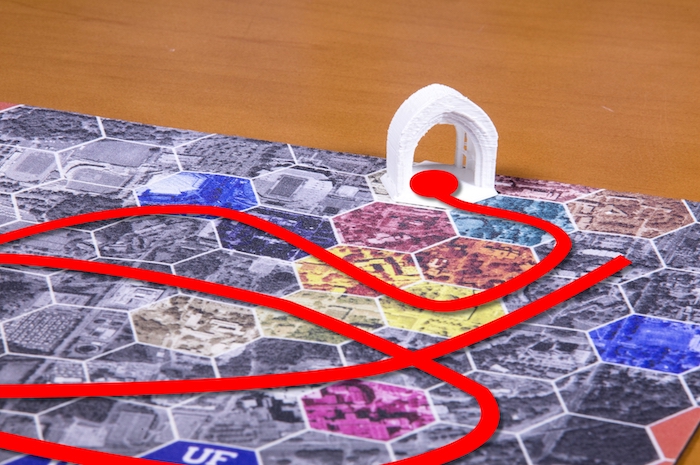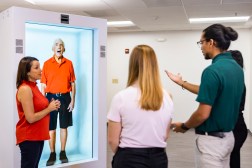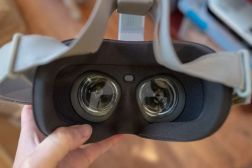Immersive app turns U. of Florida campus into educational board game

For a humanities class at the University of Florida, students are going beyond the classroom through a new immersive navigation app and corresponding board game to explore the campus and its history.
The game, part of a class called “Imagineering the Technosphere,” taps into an app called Time Traveler that uses GPS to navigate students around campus and bestow historical insights into the locations they visit, such as museums, research facilities and event venues. Upon arrival at each location, the app presents historical information and later poses a question that tests students’ comprehension of the information presented.
The app also ties into a corresponding physical board game in which students compete against each other for 3D-printed pieces that correspond to the locations visited.
Angelos Barmpoutis, one of seven professors who teach the class that uses the app and game, said the goal is to give students perspective on their surroundings on campus.
“These places are deeply connected to the past and tied to the future,” Barmpoutis said in a blog post on the university’s website. “I’m trying to get them to think about the things they pass every day.”
The University of Florida is far from the first educational institution to lean on immersive technology for class lessons. At Rutgers University in New Jersey, professors began using video conferencing to connect students at the university’s four disparate campuses and obviate the lengthy commutes needed to reach other campuses on the college’s bus network. In California, K-12 students have used “virtual field trips” to visit state parks from the comfort of their own classrooms. K-12 leaders, meanwhile, pointed in 2018 to the success of augmented reality apps like Pokemon Go as examples of how schools could add more interactivity to education.




